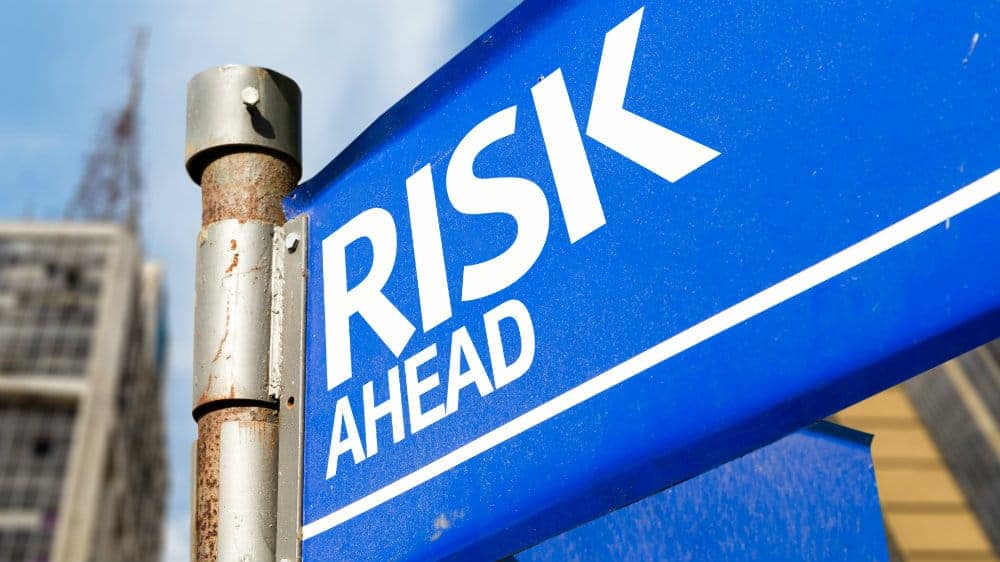One of the world’s biggest banks has suggested the chances of a recession in the UK are ‘on the rise’.
So, given this latest warning, should investors worry about their assets? Or is it worth taking a more optimistic view? Let’s take a look.
[top_pitch]
What is a recession?
A recession is generally defined as negative economic growth in two successive quarters. ‘Growth’ is measured in terms of Gross Domestic Product (GDP). This refers to the total output of the country. In other words, it’s the number of finished goods and services produced.
The UK last entered a recession in April 2020 as a result of the emergence of the Covid-19 pandemic. During that time the economy experienced steep falls in GDP. In Q1 of 2020, UK economic output fell 2.2%, while in Q2, GDP plummeted 20.4%.
Why is the risk of a recession on the rise?
This week, Deutsche Bank revealed that it expects the UK economy to shrink by 0.2% between April and June. After this period, the bank suggests the UK economy will then rebound.
Deutsche Bank points to rising household energy bills as one reason why it expects the economy to ‘flatline’ towards the end of 2022. So, while the Bank doesn’t specifically expect the UK to fall into recession this year, it does suggest that the possibility of a recession is rising.
Deutsche Bank’s chief economist, Sanjay Raja, explains: “We continue to think that the risk of recession remains on the rise. This is something we will be tracking very closely in the coming months. Consumer confidence data is already consistent with recessionary levels.”
Following the latest prediction of the German Bank, PricewaterhouseCoopers (PWC) has also recently suggested that UK economic growth is expected to drop to 3.8% this year. The professional services firm previously suggested a growth figure of 4.5% and points to the war in Ukraine as the reason behind its revised figure.
Interestingly, PWC also says that economic sanctions placed on Russia as a result of the war have made it reassess its UK inflation figure. The UK inflation rate already stands at a 30-year high of 6.2%, and PWC expects it to hit 8.2% during the current quarter of the year.
[middle_pitch]
Should investors worry about a possible recession?
Job losses, reduced economic output and a fall in consumer spending are all typical symptoms of a recession. Unsurprisingly, these factors can have a big knock-on impact on stock prices.
For this reason, stock prices usually plummet during a recession. Volatile price swings also become commonplace during such times as investors react to emerging news.
For some investors, a recession is too much to bear. This is why some may opt to sell their shares during a significant fall in GDP. However, investors who act in this way are unlikely to possess a ‘buy and hold‘ investing mindset.
Any investor who sells shares during a recession is at risk of crystallising losses, as they won’t benefit from any quick market recovery that may occur. For this reason, it’s a strategy that is rarely recommended among the wisest of investors.
It’s also the reason why investors shouldn’t really worry about an impending recession. It’s impossible to know for sure which asset classes will respond well in a recession. Selling shares by reacting to new risks is a strategy that could easily get investors into trouble.
Are you looking to invest? If you’re looking to get involved in the stock market, take a look at The Motley Fool’s top-rated share dealing accounts. If you’re a newbie, also read our investing basics guide, which can help you avoid common investing mistakes.







